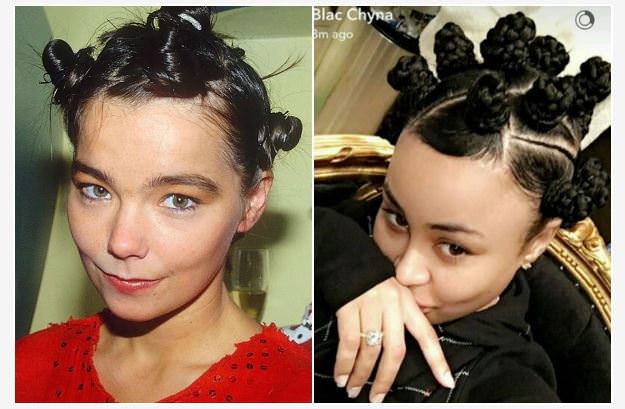
Cultural appropriation is a concept that white America should be quite familiar with by now, proving unstoppable with their frequent attempts to claim what does not belong to them. When Kylie Jenner decked out in fresh cornrows, we let it slide but not before voicing our protests. When she flaunted her Yaki ponytail at NYFW, we questioned her intentions with skeptical glares. This wasn’t the first time that the youngest of the Jenner sisters pranced the thin line between cultural appropriation and appreciation, and probably will not be the last. Surprisingly, we weren’t too hard on Jenner- she’s young and naive and doesn’t know any better. But when you’re a person of social influence, you are going to have followers and imitators that justify their appropriation with the notion that ‘If Kylie can do it, so can I’. This ladies and gentlemen is what we call a slippery slope.
Like all fascinations, white America’s intrigue with black hair began with observation. Black women across the country shared a bond built upon the annoyance that was brought with the single question: “Can I touch your hair?” They treated us like science projects, petting and probing our kinks like they were magic.
Kylie Jenner’s blatant portrayal of black culture was merely the stirring that they needed to initiate their master plan. They took our corn rows and turned them into ‘boxer braids’, renaming their ‘new invention’ because ‘boxer braids’ sounds cuter and sporty and much more tasteful. Unsurprisingly, it didn’t take long for this preexisting hairstyle to become a new trend amongst school hallways and Instagram feeds everywhere. They then seized this opportunity to take over the ‘brand new trend’ of slick baby hairs splayed against foreheads and sideburns- which may I add, have been around throughout the Latino and African American community for a while now. And alas, they are back at it again with our Bantu knots. Yes, I said Bantu knots, a hair style that has been prominent in Africa for ages. Basic research would show you this, yet it is much easier for white journalism to rename the trend completely- this time in terms that are easier for them to understand. What they don’t consider is how renaming a black trend is taking some of its cultural prominence away.
It took a long time for black hair to become ‘acceptable’ in social life; still, to this day black hair isn’t completely accepted and is often used as a mean of discrimination. Judgment is what pushed us into the welcoming hands of straightening irons and perms. So as we are finally waking up, and taking pride in our natural hair, it only makes sense that you would take that from us too. If you must be so interested in our culture, at least get your facts right. This includes giving credit to our baby hairs and cornrows and refrain from imitating everything that you see. Sometimes, it’s okay to simply watch from a distance, as long as you just don’t touch.

